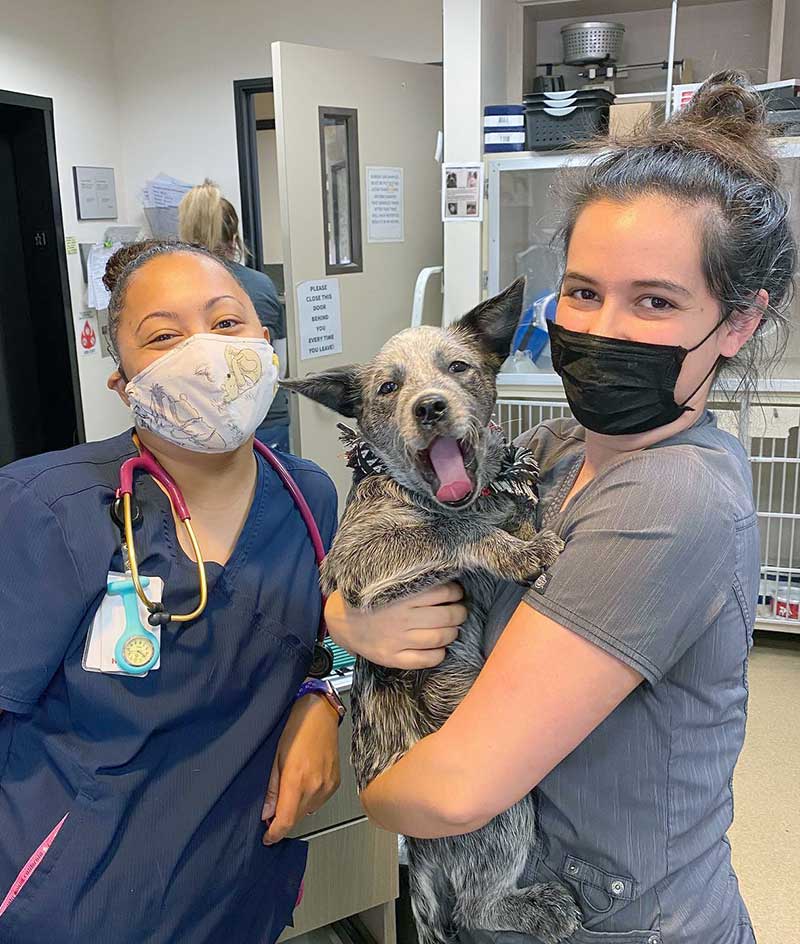FAQs
Where can I find useful information about my pet?
Internet & Our Advice: The internet is an incredible resource for modern pet owners. Unfortunately, there is much to be desired about some of the advice you can find which can serve to confuse your understanding of a particular topic. Our best advice to you is to avoid “blogs” that are written by breeders and breed fanciers. They may have a passion for a particular topic, but typically fall short of “truth”.
We like a particular website called Veterinary Partner. It is managed by the Veterinary Information Network or (VIN) which is an international veterinary learning community. You can be assured that the material there is what we call evidence based, meaning that science and research backs up the statements made there. You can search most any medical topic for multiple species.
Licensed Vets: Any licensed veterinarian has done their homework and can claim to be an expert in animal health care. It takes the average vet 8 to 9 years of college to complete their education. Once course work is finished, we are subjected to both national and state board exams and must pass these tests in order to practice. Veterinarians are your best information resource. Lastly, don’t be hesitant about calling the office at (949) 492-5777 with your questions. There is always someone on staff who can cheerfully give you the answers that you need!
There are multiple vets in our area, what sets you apart from them?
Location: Our location allows for easy freeway access. So getting here is a breeze!
Our Doctors: All of the primary care doctors who work here seeing patients has had at least one year of specialty training at a referral hospital and/or is a board certified specialist. You can be assured that they are using all of the newest and best diagnostic & treatment plans when your pet is ill.
How can I help my pet be healthy but not spend a lot of money?
Some pets never seem to get sick and others have nothing but trouble throughout their lives. Be prepared for some maintenance costs for:
- Annual examination – This allows the doctor to find problems early so that small remedies can be employed.
- Dental Cleaning – This is usually needed every 2-4 years for the average pet and if kept up with, it will protect your pets teeth from diseases and painful problems.
- Baths often – Especially if your pet has itchy allergies, bathing as often as once or twice a week can be very helpful.
- Parasite control – Fleas and internal parasites are easily prevented by simple monthly medications that have been proven safe.
- Outside risks – Rattlesnakes in the hills commonly bite pets. Stay clear of areas where they live. Also, avoid exercise on hot days. Your pets cannot cool down like people do and are subject to overheating.
For Cats keep them indoors – they are good at finding trouble when they live outside.
What should I feed my pet?
There is no simple answer to this question. We typically advise people to pick a food that is affordable, easy to get, and well tolerated by your pet. Unfortunately, everyone has a passionate opinion about pet food. As far as we are concerned there is no cure for all disease with your food choice. We as veterinarians have diet plans that help control certain medical problems such as diabetes, urinary tract disorders, intestinal issues, and obesity. A healthy pet food need not be an expensive or “hypoallergenic” food as it does nothing to prevent disease.
How can I be sure my aging pet is healthy?
A wellness visit is just what you need to set your mind at ease. This includes a chest x-ray, full blood panel, urine test, abdominal ultrasound (very important in again dogs), blood pressure check, and a thorough physical exam. Ninety-nine percent of problems will be uncovered by this screening (we cannot investigate the brain however as we do not have MRI at our facility). The entire package above is only available to animals without symptoms.

